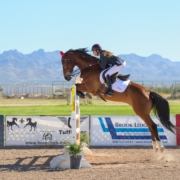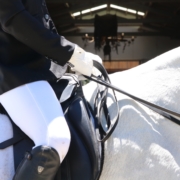What you NEED to know before you sign a sponsorship agreement
Congratulations on your sponsorship!
If you’ve been lucky enough to secure sponsorship from a business or brand, it’s likely that you will be presented with a sponsorship agreement to sign. But before you do, there’s a few things that you need to ask yourself.
1. Can you really meet your obligations?
If you’ve promised to ‘post regularly’ on social media, what does this look like? It’s not enough to just TAG your sponsor’s brand in all your posts. You will need to create bespoke posts, videos, stories or reels that feature your sponsor’s products regularly. It’s a good idea to put a content plan in place from the start. Will you post once a week, once a month, more or less?
What other means have you agreed to promote the brand? Word of mouth is often the most powerful tool so think about how you will be talking to fellow riders, clients, owners and friends about the brand.
Will you be given branded clothing, saddle cloths and arena banners which will allow you to promote the brand when you’re out competing or training?
2. How well do you know the business that you’ll be promoting?
It’s impossible to represent your sponsors brand well if you don’t know enough about the business. So if you don’t know the history or story behind the business …. ASK!
Who is in their wider team? What are their plans for the coming year? What show and events will they be attending? What are their future product development plans? Where are their product manufactured?
3. Does the sponsorship value offered meet the value that you will provide?
The value of products and benefits offered has to reflect the effort that you will put into supporting the brand. If you are only provided with a product discount or a branded saddlecloth, be very careful before signing any agreement. It may prevent you from supporting other brands who are prepared to offer you more value.
4. How long does the sponsorship agreement last?
It’s important to put a time frame on any agreement. Most sponsorship agreements are for an initial period of 12 months. It’s wise to include a clause where the sponsorship can be reviewed and renegotiated after 12 months. If you’ve done a great job supporting the brand, you may be able to increase the sponsorship value in the future.
5. What happens if things don’t work out?
Whilst it’s not nice to think about, it’s important to include a clause which allows you to terminate the agreement. If you are unable to compete or your situation changes you may not be in a position to meet your agreed obligations. Depending on the value of the products, will you have to return them?
6. Is it ok to use a competitor’s product during the sponsorship term?
In short, the answer here is NO. If you have the right agreement in place you will not need to use another company’s product. The only exception here is if a competitor’s brand has a wide range of products. This is where it’s important to read the small print and agree terms before you sign.
7. Who will be leading the relationship?
A good relationship is one that works both ways. Don’t wait to be asked to promote your sponsors brand. It should be something that you do regularly. It’s a good idea to plan the next 6 or 12 months with your sponsor so you are both clear how you will be working together.
8. How will you ensure good communication?
Communication is KEY to successful sponsorship. It doesn’t matter how you communicate; email, text, phone call or in person be clear of the best way to keep in touch!
9. How will you demonstrate your sponsorship value?
This is the all-important question and every relationship will differ here.
If you are recommending your sponsor’s products by word of mouth, keep a note of it. Where possible, it’s a good idea to pass potential new customers directly to your sponsor.
A personal discount code is easily tracked for number of sales.
Keep a record of social media reach, comments and engagement rates for all posts associated with your sponsor.
If you are distributing marketing material at show, clinics, lessons or events, keep a track of it.
It may also be useful to share a calendar of events where you have been seen with your sponsors brand.
Conclusion
Overall, every sponsorship or brand ambassador relationship should have some sort of agreement in place. Depending on the situation, it doesn’t always have to be a multi-page legal document but even having a short informal agreement is important to ensure both parties get the value they deserve.







 Hannah Freeland Photography
Hannah Freeland Photography
